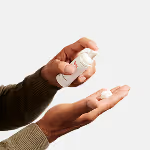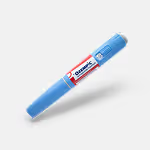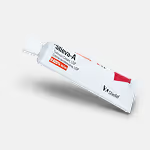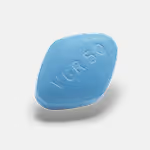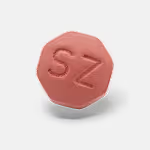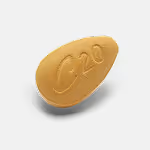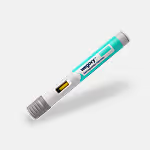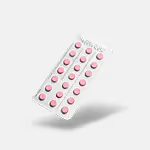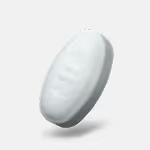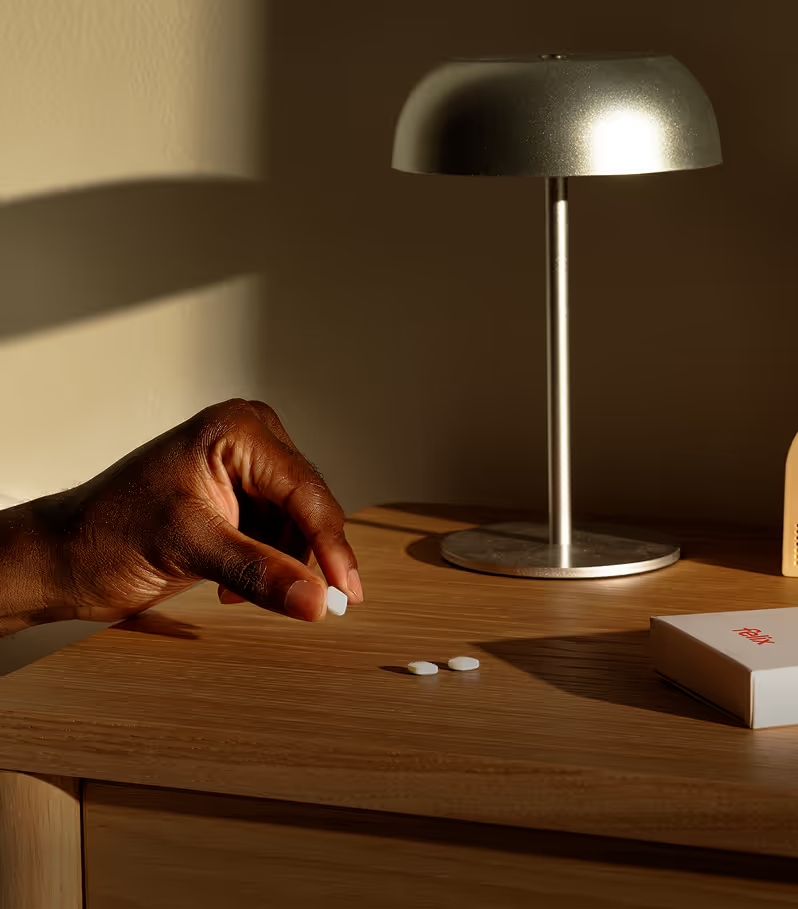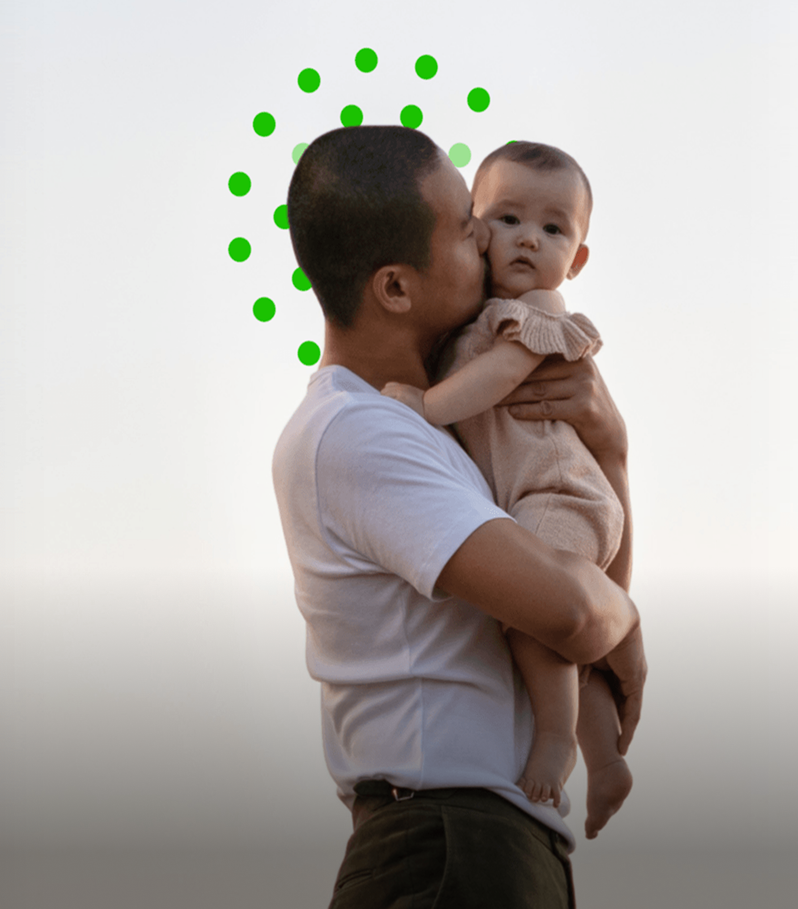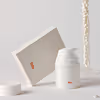Download the Felix App
Earn reward, visit our shop and get exclusive offers on the app
Download nowEarn reward, visit our shop and get exclusive offers on the app
Download nowPut your health first in 2026 with free visits on all categories, and $200 off longevity testing.
Download nowPut your health first in 2026 with free visits on all categories, and $200 off longevity testing.
Download now
AI-generated summaries may be inaccurate and do not constitute medical advice. Third-party AI tools are not under Felix's control, and your use of them is at your own risk.
Cold sores are decidedly not fun.
While they're common and they often aren't a cause for concern, they don't really look or feel great. They can be itchy and painful, and at some point, fluid starts to ooze from them — overall, they just don't make for a great experience.
This means if you've noticed a cold sore starting to form, chances are you're already looking for a way to get rid of it. So let’s get into what causes cold sores and, more importantly, what you can do to get rid of them — preferably ASAP.
Cold sores are caused by the Herpes Simplex Virus Type 1 (or HSV-1).
HSV-1 is nothing to be embarrassed about. The World Health Organization estimated that 3.7-billion people had the HSV-1 infection in 2016, equivalent to 66.6% of the world's population (aged 0 to 49) — making it the most common viral infection.
HSV-1 is not genital herpes, that’s HSV-2. Type 1 is primarily transferred through oral-to-oral contact, though it should be noted that oral to genital transmission is possible during oral sex.
While it's estimated that one in five Canadians has HSV-1, for most people the virus tends not to cause problems beyond the occasional cold sore outbreak. Those outbreaks usually don't require a trip to the doctor, as most cases will simply clear up if left alone.
However, for some people, cold sores can be really painful. On the flip side, some people can carry the HSV-1 virus and never see a sore.
Cold sores caused by HSV-1 are sometimes also called fever blisters. They most often appear around your mouth, though they can show up anywhere on your face. They appear as small fluid-filled blisters, and eventually, they pop and start to leak the liquid that's stuck inside.
In addition, cold sores can:
All said, they're not overly comfortable companions to have on your face.
Sometimes cold sores seem to sneak up on you, seeming to appear out of nowhere. But if you're paying close attention, itching, stinging, tingling, and other types of discomfort often occur 6-to-48 hours before a blister appears.
Once a cold sore appears, the skin around it swells, turns red, and becomes increasingly sore. Then, in many cases, the blister pops, clear liquid comes out and it scabs over. The entire process can take anywhere from a few days to a couple of weeks — and that can seem like a long time when it’s your face.
Cold sores are annoying and can be hard to cover up.
While you can usually blend one out with a decent concealer, if it's an open sore you probably want to leave it alone so it doesn't get infected. Likewise, covering one up can hinder the healing process — so you want to do your best to let it breathe. In most cases, your cold sore will go away in a week or two without treatment.
But doing nothing leaves you with an obvious sore on your face, so how do you get rid of it faster?
There's no magic treatment that will make it instantly disappear — which means if you're hoping to get rid of it for your date tonight at 7pm, you're out of luck. But there are a few remedies that may be able to help you get rid of cold sores faster:
Starting the process of getting rid of a cold sore could be as easy as heading down to your local drug store and getting your hands on some over-the-counter (OTC) medication. OTC medication doesn't require a prescription, which means you can walk in, grab it, and walk out (though you do have to pay first).
OTC medications can help to reduce itching, burning, tingling, and other pain associated with cold sores. It also works to cut off the virus' ability to spread to other cells surrounding it, reducing the time it hangs around.
But OTC medication doesn't work for everyone. If you’ve tried it and need something stronger, there are other choices that your doctor may prescribe to help your cold sore go away.
It's not always necessary to seek medical advice for your run-of-the-mill cold sore (though if anything seems off, you should talk to your doctor right away). But antiviral drugs may be able to help reduce both the spread and the amount of time you have to put up with the cold sore.
Antiviral medication can help slow the spread of the herpes simplex virus and, in many cases, starts providing relief in as little as two or three days.
If you (and your doctor) believe that one of these antiviral medications is your best choice, you want to start as soon as possible. Catching the cold sore early on has a higher possibility of speeding up the healing process — which means you can get on that date faster!
It would be lovely if you could simply open up your cupboard and pull out one or two natural remedies that would magically get rid of a cold sore. But while there are options out there, there isn't sufficient proof that they actually help with the healing process.
There are a few at-home remedies that are associated with healing a cold sore:
It should be noted that things like apple cider vinegar and essential oils can be irritants and should be diluted before you put them directly on your skin.
Overall, these remedies may or may not work for you, but before you start rubbing oils all over your face or squirting vinegar on your sore, you should consult your doctor. Not every do-it-yourself solution out there is safe, and your body may react differently than others.
There is no sure-fire way to prevent cold sores from coming back. They'll come or they won't — it's really not up to you. However, there are a few ways you might be able to reduce the frequency of their occurrence:
Cold sores could be triggered by things like stress or a cold. Avoiding these triggers means taking care of both your mental and physical health. You may not be able to completely avoid stressful situations or run away from a common cold, but being aware that they could trigger a cold sore and taking preventative measures could help reduce their occurrence in the long run.
Your skin is a very important organ. It doesn't just serve to get rid of the Halloween skeleton look you'd have without it, it plays a vital role in the protection and function of your body. So, you need to treat it well. Regularly applying sunscreen (even when it's not sunny) and using lip balm with SPF could prevent a cold sore outbreak as sun exposure can aggravate them.
This is a no-brainer, especially in a world with COVID-19, but regularly wash your hands and try not to touch your face. If you currently have a cold sore, step up your hand-washing game even more, and do not touch the sore. Not only can it spread the virus, but it could also irritate the sore.
While sharing can sometimes mean caring, it can also mean increasing your risk of getting an infection. Avoid sharing items like water bottles or glasses, toothbrushes, razors, cutlery, or other items that might have touched the face area with someone who currently has a cold sore.
Unfortunately, there isn't a cure-all for cold sores. If you get one, you have HSV-1, and chances are you'll experience them in the future.
The good news is that treatment for cold sores is simple. In fact, you usually don't have to do anything at all if you don't want to. Whether you want to avoid the doctor's visit and opt for OTC medications, or grab some medical assistance and work with the heavy-duty stuff, there are options out there.
Start your online visit with Felix to talk to a healthcare practitioner about what treatment options might be right for you.
Medically reviewed by
References




